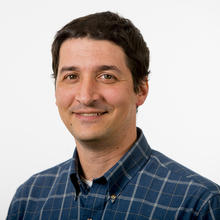
Yale University
Alvaro Sanchez, assistant professor of ecology and evolutionary biology, has been named one of 22 recipients of the 2019 Packard Fellowship for Science and Engineering.
Sanchez will receive a $875,000 over five years to fund his research on microorganisms. Founded by David and Lucille Packard, the Packard Fellowship is awarded annually to early-career scientists nationwide as a source of flexible research funding.
“We’re trying to see if we can predict how microbial communities will respond to selective pressures, to nutrient shifts [and] to temperature increases, [and] if it is possible to quantitatively predict the behavior of microbial communities,” Sanchez said.
Sanchez’s two-page proposal for the grant was about his research program — the Sanchez Lab at Yale — creating a predictive quantitative model on how microbes respond and interact with each other in different environments. He said this approach will allow for other scientists to apply the model to research in fields such as bioremediation, dieting and protecting crops from pathogens.
Stephen Stearns — the Edward P. Bass professor of ecology and evolutionary biology and the director of undergraduate studies for the major — noted that Sanchez does “a type of research that was not being done in EEB before he arrived.”
Stearns noted that Sanchez brings creativity to his work by building on a variety of fields to inform microbiology, including physics, applied mathematics, evolution and ecology.
“[He] has exploited the fact that we know virtually all the biochemical pathways in bacteria to construct mathematical models that predict how they will interact with each other in complex communities,” Stearns said.
Maddie Bender ’20 — one of Sanchez’s lab members and a former SciTech and Copy Editor for the News — described Sanchez as the “kindest and most deserving people [she] know[s] to win this award.”
Bender said that at her previous labs, she would receive projects without clear direction on how to proceed. When offered a place in Sanchez’s Lab, she said she was concerned about whether she would “actually be mentored and taught the ropes of the techniques” used at that lab.
But when she arrived at the Sanchez Lab, Bender did not have to worry about that.
“The first time you watch us do it,” Bender said of the lab. “The second time, you do something, and we will do it with you. The third time, you do it on your own.”
In the scientific community, Bender said deserving scientists are often not recognized for their work. She gave the example of researchers who have won Nobel Prizes.
“People who win are maybe the best at communicating their research, but not necessarily the best at conducting their research … or [their lab] conditions are not ideal for people studying there or the principal investigator isn’t really involved in researching and doesn’t know who half of the people working in his lab are,” she said. “None of that is the case for Alvaro or the Sanchez Lab.”
Bender said the mentorship offered by Sanchez and other lab members allowed her to be independent in her research.
“[Sanchez] supports them and gives them lots of credit,” Stearns said.
The Packard Fellowship was established in 1988.
Mary Chen | mary.chen@yale.edu







